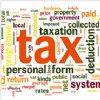September 2018
 Superannuation – Self Managed Funds
Superannuation – Self Managed Funds
Contributions Self-managed Super Fund can accept.
The Australian Taxation Office has provided information regarding the contributions that a self-managed superannuation fund can accept.
Read More >>>Are you? – A trustee or director of a corporate trustee of a SMSF?
At a glance:
– The Australian Taxation Office has provided information regarding the contributions that a self-managed superannuation fund can accept.
You should:
– Ensure you comply with the minimum standards set by the Australian Taxation Office.
– Contact us if you require any clarification or advice.
The Australian Taxation Office has provided details regarding the contributions that a self-managed superannuation fund can accept to be eligible for tax benefits and avoid incurring penalties.
The following should be considered before accepting any contributions:
- If the members contributing to the fund have provided their TFN.
- The type of contribution
- The age of the members
- The contribution cap
- Mandated contributions are contributions made by an employer under law or industrial agreement. A SMSF is allowed to accept mandated employer contributions for members anytime and without age restrictions.
- Non-mandated contributions can include personal, Government or spouse contributions and employer contributions above super guarantee or award obligations, such as salary sacrifice contributions.
- Non-mandated contributions from members who aged 75 or over cannot be accepted by a self-managed superannuation fund.
- For more information, click here.
Remember:
– You should return contribution from members without TFN within 30 days of becoming aware that you received it.
This article was published on 31/08/2018 and is current as at that date
 Tax – Personal Income
Tax – Personal Income
Tax changes for 2018 tax returns
The Tax Office has released a summary of key changes to be aware of when taxpayers prepare their 2018 income tax returns…
Read More >>>Are you? – A taxpayer?
At a glance: – The Tax Office has released a summary of key changes to be aware of when taxpayers prepare their 2018 income tax returns.
You should: – Be aware of the key changes when preparing your 2018 tax return.
– Contact us if you require any clarification or advice.
There have been a number of changes to 2018 tax returns which will affect a range of taxpayers.
One of the changes the Australian Taxation Office has made is the way taxpayers show amounts at item D10 Cost of managing tax affairs. The cost of managing your tax affairs should now be presented into three categories as follows:
- Interest charged by the ATO
- Litigation costs
- Other expenses incurred in managing your tax affairs
From July 1, 2017, most taxpayers under 75 years old (including those aged 65 to 74 who meet the work test) are able to claim a deduction for personal super contributions regardless of their employment arrangement..
From July 1, 2017, taxpayers are no longer entitled to claim any deductions for travel expenses incurred relating to a residential rental property.
The Australian Taxation Office has also disallowed taxpayers to claim depreciation for second-hand plant and equipment in rental properties used for residential accommodation, effective from July 1, 2017.
For the complete list of key changes for 2018 tax returns or more information, click here.
Remember: – Ensure you are aware of the latest changes to the tax system and how they affect you.
This article was published on 31/08/2018 and is current as at that date.
 Tax – Personal Income
Tax – Personal Income
Debt forgiveness and Capital gains tax
Forgiveness of a commercial debt can give rise to a capital gain…
Read More >>>Are you? – A taxpayer whose commercial debt has been forgiven?
At a glance: – Forgiveness of a commercial debt can give rise to a capital gain.’
You should: – Be aware of the capital gains tax consequences of a forgiven commercial debt.
– Contact us if you require any clarification or advice
A debt is forgiven if the taxpayer is freed from the obligation to pay it. If the debt was forgiven after 27 June 1996, Commercial debt forgiveness rules will apply.
A commercial debt is a debt if part or all the interest payable on the debt is, or would be, an allowable deduction.
Under the commercial debt forgiveness rules, a forgiven amount may reduce (in the following order) the taxpayer’s:
- prior income year revenue losses
- net capital losses from earlier years
- deductible expenditure
- cost base and reduced cost base of assets
Commercial debt forgiveness rules does not apply if the following situations happen:
- the debt is forgiven as a result of an action under bankruptcy law;
- the debt is forgiven in a deceased person’s will;
- the debt is forgiven for reasons of natural love and affection;
- the debt is waived and the waiver constitutes a fringe benefit
- the amount of debt has been, or will be included in your assessable income in any income year
- the debt is a tax-related liability.
To find out more, click here.
Remember: – the time for the forgiveness is important and be sure that the debt forgiven is considered as commercial debt.
This article was published on 31/08/2018 and is current as at that date
 Superannuation – Self Managed Funds
Superannuation – Self Managed Funds
Division 293 Tax
Taxpayers may need to pay Division 293 tax if their adjusted income (as defined) and low-tax contributions are greater than $250,000…
Are you? – A high-income individual?
At a glance: – Taxpayers may need to pay Division 293 tax if their adjusted income (as defined) and low-tax contributions are greater than $250,000.
You should: – Check whether you are obligated to pay Division 293 tax.
– Contact us if you require any clarification or advice.
Division 293 tax, which is paid by high income individuals making concessional contributions into their superannuation funds, is charged at 15% of an individual’s taxable concessional contributions above $250,000 from 1 July 2017.
Income for surcharge purposes include the following items:
- taxable income (including the net amount on which family trust distribution tax has been paid);
- reportable fringe benefits (as reported on your payment summary);
- total net investment losses (includes both net financial investment losses and net rental property losses); and
- reportable super contributions.
Contributions for Division 293 tax purposes include the following items:
- employer contributed amounts;
- other family and friend contributions;
- assessable foreign fund amounts; and
- assessable amounts transferred from reserves.
- personal contributions for which a deduction has been claimed
- defined benefit contributions (funded and unfunded).
Contributions into a constitutionally protected superannuation fund may be exempted from Division 293 tax.
For more information, click here.
Remember: – Reportable super contributions are disregarded from the surcharge calculation.
This article was published on 31/08/2018 and is current as at that date
